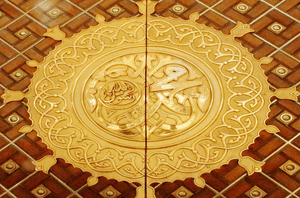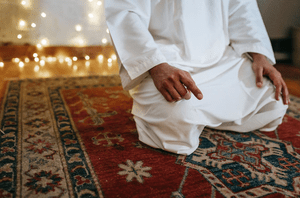Another means of attaining khushūʿ in ṣalāh is to engage in ʿibādah, especially in private. Just you and Allah (‘azza wa jall). No one else.
You may perform many acts of ʿibādah, but still not experience their sweetness. Rectify this by increasing your private worship. Private worship is one of the best ways to attain sincerity and protect yourself from hypocrisy. Once your heart is purified, you will taste the sweetness of īmān and worship.
Imām Mālik (raḥimahullāh) said, “Whoever would like to have peace in his heart, and be saved from the agonies of death and the terrors of the Day of Judgement, then let his private deeds be greater than his public ones.”
The Nafs Loves Praise
Our inner self (nafs) rages inside of us. It loves praise and hates criticism. Sometimes it insidiously manifests itself when we mention our private worship in casual conversation with someone. We must, however, fight this. We should avoid mentioning our private acts of worship and maintain it as a special ‘secret’ between us and Allah (‘azza wa jall). Sufyān al-Thawrī (raḥimahullāh) said, “When the servant performs a deed in private, Shayṭān keeps at him until he mentions it. It then moves from the records of private deeds to the record of public deeds.”
However, this does not mean that every deed should be done only in private. On the contrary, numerous deeds have to be performed communally and, therefore, in public. Nevertheless, we should strive to have a collection of ‘secret deeds,’ deeds that no one has knowledge of but Allah (‘azza wa jall).
The Messenger of Allah ﷺ said, “Whoever amongst you is able to have hidden good deeds, then let him do so” (Muṣannaf b. Abī Shaybah).
Be careful of ʿujb
Conducting deeds in private may seem like an act that is free from risks. It is not, and you should be careful of your nafs. Just like you ought to be wary of riyā’ (showing off) when you worship Allah in public, you should be wary of ʿujb (self-admiration) when you worship Allah in private.
ʿUjb is to be impressed with yourself and your feats. ʿUjb can lead to pride (kibr). This pride can lead to you comparing your actions to others, and start regarding your deeds to be better than theirs. You may, as a result, start looking down on them. Consequently, instead of purifying the soul, your private deeds lead to the destruction of the soul.
Next: Step 6: Persistently Ask Allah for Khushuʿ and Do Not Give Up






